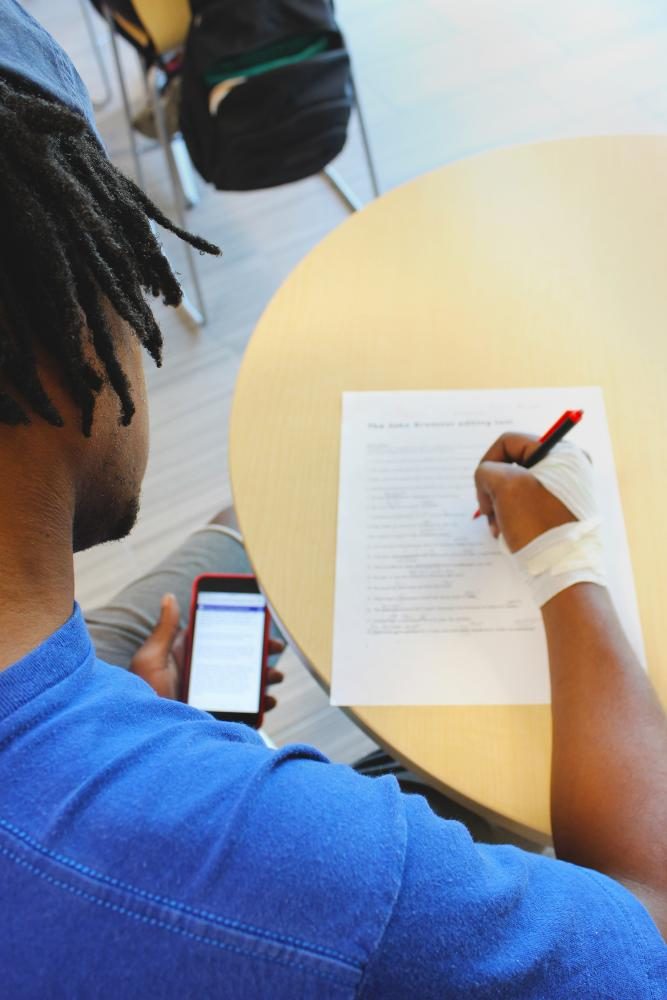Technology is making it easy to cheat
Colleges need to implement new policy regarding cell phone use
ALEX PETTIT ESTELL | Evergreen Photo Illustration
Voiland College of Engineering reported about 80 cheating cases this summer, most of which involved the use of cell phones.
September 12, 2017
With so many students striving to gain higher degrees, academic integrity policies ensure the quality of education. The WSU Voiland College of Engineering is both competitive and difficult to certify in, but many instances of cheating have still been reported.
The college needs to enforce stricter policies regarding the use of cell phone devices during tests. This summer, the WSU Civil Engineering Department reported about 80 cheating cases to the Office of Academic Integrity, mainly from Kuwaiti international students, according to the department. The majority of the cases were in Civil Engineering 211, the engineering mechanics introductory course.
“To my knowledge, all cheating incidences this summer in CE 211 were committed by non-degree seeking students,” said John Rarig, undergraduate adviser for the department of civil engineering. “All the students committing academic integrity violations received failing grades.”
With an overwhelming number of cases, the department did not hesitate to fail all cheating students to protect its reputation and certified students.
The cheating students paid an overseas teaching assistant to solve test problems for them online. One of the students would typically volunteer to take a picture of the exam with their cell phone after it was passed around and would send it to the TA on a Whatsapp chat messenger. In order to avoid suspicion, they would sit far from one another while added on the same group chat and wait for the solutions.
“If students from a different institution come to WSU with the goal of cheating to earn a grade they should not receive, it can paint the university in a negative light,” Rarig said. “This impacts everyone who has received or will receive a degree from WSU.”
Engineering classes as difficult as CE 211 are usually graded on a bell curve to help average students pass despite an overall low class grade. However, when the bell curve is applied and a large percent of the exam grades are augmented by cheating, this can lower the grades of hard-working students.
“When I was a sophomore,” said Claire Hovde, senior civil engineering major, “literally half the class failed because so many people cheated on the final.”
The cheating cases caused embarrassment to the engineering college and its certified students. WSU should not be a destination for low academic standing and academically indifferent students. Stricter cell phone policies would deter dishonest students, and instructors should make students place their cell phones on the front desk of classrooms before exams.
“The no-cellphone policy would need to be clearly expressed in all syllabi,” Rarig said, “and strictly enforced to ensure that no students are using any electronic device to cheat during an exam.”
All WSU colleges should update their academic policies in an era of creative cheating through mobile technology. If, for instance, a student successfully cheated on all their tests and graduated, they are set up for career failure. This would discourage various industries and graduate colleges from accepting WSU graduates.
A crackdown on cheating would protect students in bell-curved classes and students from stereotypes. If the policy upgrades are not discussed, this summer’s incidents will occur again.
Editor’s note: This column has been updated from its original form.










